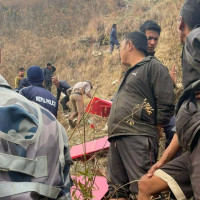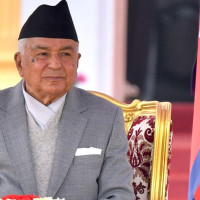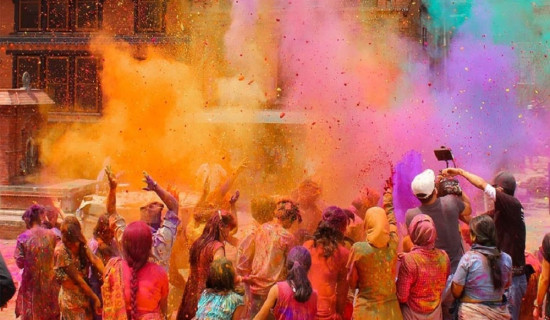- Tuesday, 3 March 2026
No Alternative To Political Pluralism
Liberal multiparty democracy had been a very much contested notion in Nepal during the early sixties. It was argued that Nepal was not yet ready to come to terms with competitive multiparty democracy. This, according to a pro-monarchist critic, had been because the country lacked minimum social and economic conditions and civic infrastructures that are required to adapt and imbibe the growth and development of multiparty liberal democracy in the country. It divides the society into political factions and creates disharmony and discord in the otherwise long-cherished social cohesion and community relationships. Party leaders tend to nurse their parochial interests, obscuring the overall national outlook.
The multiparty democracy was tried out and experimented in the country during the late fifties, but it was dismissed by the late King Mahendra, contending that plural partisan politics is not suited to the genus and social ambience of Nepal. The monarchy-led polity was reimposed. The political structures were so created that the political groups biased in favour of multiparty democracy and political pluralism were precluded and deliberately barred from taking part in the monarchy-led politics in the country. However, the narrative of the non-party authoritarian polity opposed to liberal multiparty democracy failed to resolve its inherent deficits and halt the dynamics of democratic aspirations of the people.
Liberal democracy
The onslaught of the wave of liberal democracy was so strong that the authoritarian polity caved in and gave way to the restoration of multiparty politics in the country during the 1990s. Even during the post-democracy era, political analysts held the view that the anomalies and deficits seen in the functioning of multiparty democracy in Nepal stem from the gaps subsisting between the values and ethos of multiparty democracy and existing socio-economic structures and patrimonial party leadership in the country. However, such views did not in any way hint at rolling back the liberal democratic institutions and reviving the party-less authoritarian politics led by the monarchy.
Today, political forces like the Rastriya Prajatantra Party and other pro-monarchist forces that campaign in favour of restoring monarchy need to be cognisant of the fact that there is no substitute for liberal democracy and their scheme of monarchy restoration holds no logic. The communists in Nepal, whether they are UML or Maoists, find no reason to overrule liberal democracy and plead for power-monopolistic type politics in the country. Despite several deficits and shortcomings, liberal democracy is a superior form of government. Democracy derives its legitimacy from the consent of the people. Democracy implies freedom of speech, association, and assembly- essentially the freedom for individuals to express who they are and what they believe.
Way back in 1947, the then British Prime Minister Winston Churchill is recorded to have remarked that many forms of government have been tried, and will be tried in this world. No one pretends that democracy is perfect. Indeed, it has been said that democracy is the worst form of government except all those other forms that have been tried from time to time. As observed by Winston Churchill, democracy is a difficult and necessarily arduous process. It is about citizens and states organising through proper institutional and core values in a common effort for social progress and justice. However, instituting a democratic system properly is not easy, nor has it been perfected. But it is in this difficulty and imperfection that the strengths of democracy are present.
A Canadian minister and parliamentarian remarks, “If there is one overriding truth about democracy, it is that it is precious but vulnerable. Over my years as a parliamentarian, I have witnessed many threats to democracy. While many are obvious, the most dangerous are subtle. It is not empty stomachs, impunity or corruption alone that necessarily jeopardise democracy; it is their accumulated effects. The greatest threat to democracy does not always come from the barrel of a gun, but from the cumulative effects of poverty, apathy, and economic insecurity”.
The obstacle to democracy is that the value of its name often exceeds the principles of its practice. The very fine book by Levitsky and Ziblatt, "How Democracies Die", echoes this spirit and speaks of democracies being in trouble when the leaders do not defend the key institutions of constitutional government. These are not properly protected and fostered by leaders who vouch for them. In fact, democracy can only be as good as people choose to make it.
Civic vigilance
Referring to the need for civic vigilance and responsibility, late President Václav Havel of the Czech Republic wrote: "A genuinely fundamental and hopeful improvement in political and economic systems cannot happen without a significant shift in human consciousness, and that it cannot be accomplished through a simple organisational trick. Citizens must discover again, within themselves, a deeper sense of responsibility towards the nation, which means responsibility towards something higher than him or herself. Both citizens and leaders must place the democratic process above themselves." This indicates that voters must be responsible for making enlightened choices.
In the end, anything less presents a major threat to democracy. For this reason, the persistent problem is a lack of civic competence, which is a perpetual threat to democracy. How can one vote and elect the good democratic leaders when one has no democratic competence and awareness to choose right from wrong? If democracy is to flourish and take shape, both voters and leaders should be enlightened enough and responsible enough to ensure that democratic institutions are enabled to respond to the needs and aspirations of the citizens. Without vigilant citizenry and countervailing civic competence, political leadership fails to accomplish, and forces opposed to democracy can raise their uglier heads.
(The author is presently associated with Policy Research Institute (PRI) as a senior research fellow. rijalmukti@gmail.com)
















